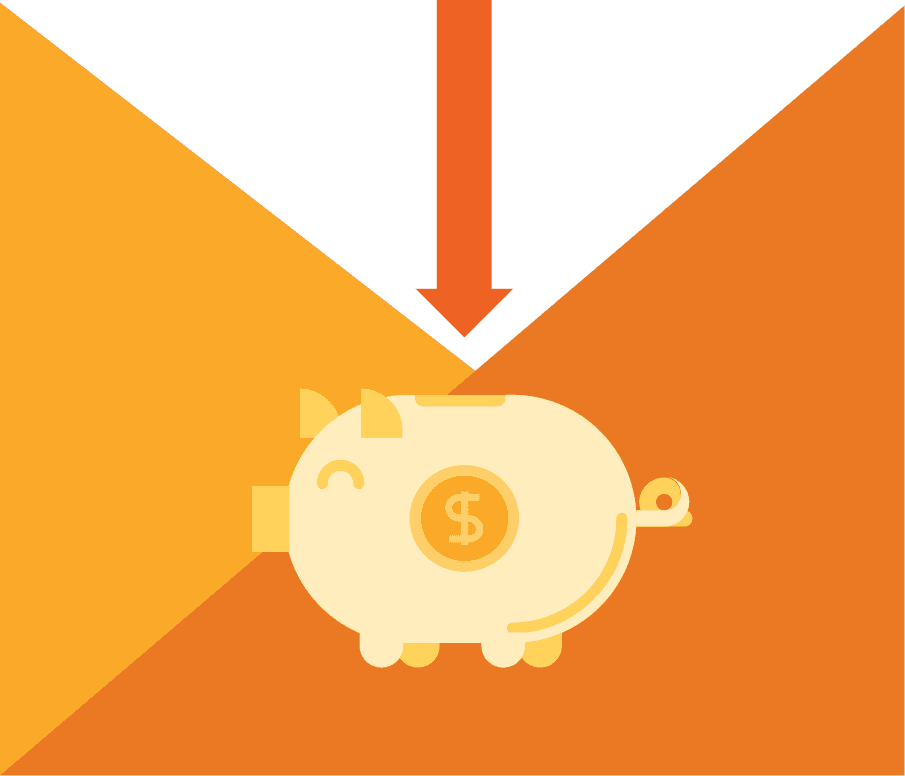For many students, obtaining their degree wouldn’t be possible without student loan aid. The Federal Reserve found that over 40% of all adults who went to college took on some debt for their education, according to The Economic Well-Being of U.S. Households survey.
This debt, however, must be repaid over time. Generally, repayment can be as long as 10 years or more. Even though borrowers are given a set period to repay their loans, some opt to pay them off sooner. Here's what you should know.
Can you pay off loans early?
If you’ve amassed a high student loan balance over the years, you have the option to pay it back ahead of schedule. Unlike other types of loans, private and federal student debt typically don’t incur penalties for paying off the loans early.
Depending on the type of student loan and the agreement you signed with your lender, your repayment period can vary. Additionally, the minimum amount due each month depends on whether your student loan has a fixed or variable interest rate.
Generally, you’ll have multiple years to repay your student loans. For instance, federal student loans have a fixed rate that doesn’t change, and a standard repayment term of 10 years. If you pay more than the minimum monthly payment, you can shave months or years off of your original term.
Advantages of paying off student loans early
There’s no arguing that getting out of debt can be advantageous. Below are some of the top reasons to pay off student loans early.
Reduced interest costs
The longer you take to pay down your student balance, the more interest you’ll pay over time. Deliberately paying off loans early eliminates some of this interest cost.
For example, if you had $20,000 in student loans at 5%, you’d pay $5,456 in interest over 10 years. If you could repay your student loans in under 10 years — let’s say six — you’d pay a total of $3,191. That’s $2,265 in savings.
Potentially improved credit score
Your credit score is influenced by many factors, including the amount you still owe on your student loan, compared to the loan’s original balance. In fact, 30% of your FICO score is based on the amounts owed on your debt accounts.
The less you still owe on an installment loan, compared to the original borrowed amount, the better it is for your score. Responsibly repaying the loan faster demonstrates your ability to manage credit, and might lift your score.
Increased financial flexibility
Having fewer debts to pay for each month means you can make conscious choices about how to use your remaining funds. If your minimum monthly student loan payment was $400, but you’ve already paid the loan in full, you can redirect that $400 per month towards other goals.
The increased financial flexibility can help you pay off a car loan, invest in your retirement, or grow your emergency fund.
Reduced stress
Managing student debt can be overwhelming. A scientific study in the journal "Addictive Behaviors" revealed a link between high student debt and mental health issues, like anxiety and depression.
When you pay off loans early, it can ease the financial pressure you might feel during your day-to-day life. You may feel a sense of accomplishment and relief, which can help cut down on stress and improve your overall well-being.
Drawbacks of early debt repayment
Although there are plenty of good reasons to pay off student loans early, there are caveats involved.
Higher monthly payments
Aiming to pay off loans early means the amount of money you’re paying upfront toward your debt is higher. Instead of making smaller monthly payments for the minimum due, you’ll have to devote a larger part of your income to speed up your payoff timeline.
Missed opportunity costs
By devoting more money to your student loans, you’re likely taking available funds from other parts of your budget. This financial negotiation means you may face missed opportunity costs.
For example, focusing on investing instead of student loans might offer higher returns. Compare the interest you spend on your student loans with what you could reasonably earn by investing. If you choose to pay off your loans faster, you might have to delay those investment opportunities.
Lost tax deductions
When repaying your student loans, you have the option to claim certain tax deductions. For example, you can deduct up to $2,500 from your federal taxes for the student loan interest you paid during the tax year. Once your debts are fully repaid, you’ll lose this tax benefit.
Forgoing loan forgiveness programs
Federal student loan borrowers might be eligible for loan forgiveness programs. These programs, however, typically require you to enroll in an income-driven repayment plan for 10 to 25 years.
Important:
Loan forgiveness is only available for eligible federal loans with an unpaid balance. Student loans that are paid in full early are ineligible for this benefit.
Should I pay off my loans early?
Whether it makes sense to pay off loans early depends on your personal circumstances. Paying off your student debt sooner might make sense if:
- You have a healthy emergency fund: Aim to save a minimum of three months’ worth of expenses for a rainy day.
- You can meet your other financial obligations: For example, you can comfortably make 401(k) contributions and pay other bills on time.
- You have room in your budget to pay extra: After all your bills and recurring expenses are paid for the month, you have extra discretionary funds sitting around.
- You don’t have higher-interest debt: Revolving debt that charges high interest, like credit cards, is likely much more expensive than your student loans. Focus on paying these types of debt off first before repaying your student loans early.
- You’re not working toward loan forgiveness: If you don’t have eligible student loans, or are not planning on pursuing federal loan forgiveness in the future, paying off your student loans early may be a good move.
4 strategies to pay off loans fast
If your primary financial goal is getting rid of your education debt, there are a few strategies to help repay your student loans faster:
1. Pay more than required
Making more than the minimum monthly payment results in getting out of student debt faster. If you try this strategy, another consideration is which approach to take.
The “debt snowball” approach focuses on putting extra funds toward the loan with the smallest balance first. Doing so offers small, quick wins and can keep you motivated in your repayment journey.
Conversely, the “debt avalanche” method prioritizes paying down the loan with the highest interest rate first. This strategy can help you save money on interest charges.
2. Make biweekly payments
Instead of making one monthly loan payment, consider splitting up your payment into biweekly payments. By making half of your minimum required payment every two weeks, you’ll end up making one extra full payment by the end of the year.
For example, let’s say you owe $40,000 in student loans with an interest rate of 7%. With the 10-year Standard Repayment plan, you’ll repay the loan 13 months earlier and save more than $1,896 in interest.
3. Use windfalls for lump-sum payments
Any excess of money you receive throughout the year can be used for a bonus lump-sum payment toward your student loan. This might include tax refunds, annual performance bonuses, or cash gifts.
4. Refinance
If you have a high student loan interest rate or unfavorable terms, explore student loan refinancing. This strategy is offered by private lenders that pay off your original federal or private loans, and create a new refinance student loan in their place.
The new refinance loan will ideally offer a lower interest rate and terms that make sense for your repayment goals.
Keep in mind:
By refinancing federal student loans, you’ll no longer be eligible for federal benefits like income-driven repayment and forgiveness opportunities.
Credible rating
Fixed (APR)
5.48% -
Loan Amounts
$10,000 up to total refinance amount
Min. Credit Score
680
Credible rating
Fixed (APR)
5.49% -
Loan Amounts
$5,000 - $250,000
Min. Credit Score
680
Credible rating
Fixed (APR)
5.85% -
Loan Amounts
$5,000 - $250,000
Min. Credit Score
670
Credible rating
Fixed (APR)
6.00% -
Loan Amounts
$7,500 - $200,000
Min. Credit Score
700
Credible rating
Fixed (APR)
6.20% -
Loan Amounts
$10,000 up to the total amount
Min. Credit Score
670
Credible rating
Fixed (APR)
6.34% -
Loan Amounts
$7,500 - $250,000
Min. Credit Score
680
Credible rating
Fixed (APR)
6.49% -
Loan Amounts
$10,000 - $750,000
Min. Credit Score
Does not disclose
All APRs reflect autopay and loyalty discounts where available | LightStream disclosure | SoFi Disclosures | Read more about Rates and Terms


